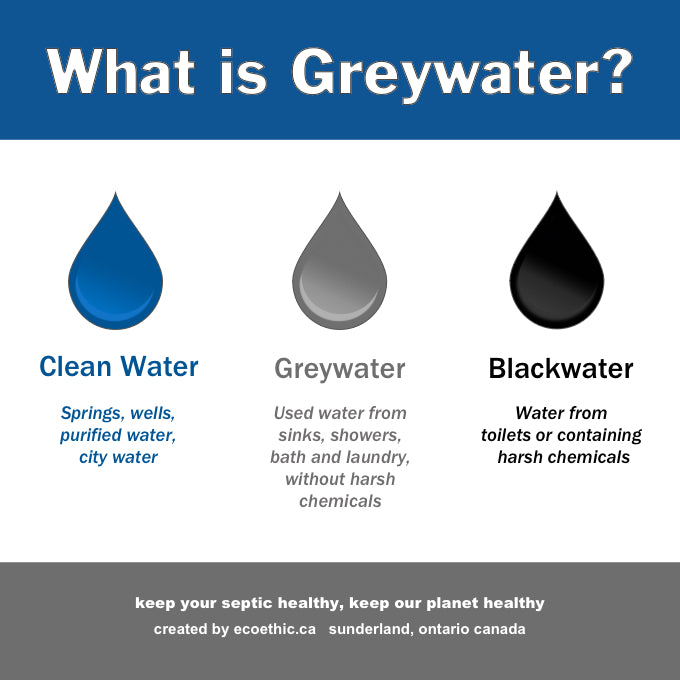Wastewater generated in households is defined by two different terms. Greywater and Blackwater. Yum, yum, right?!
Greywater is household wastewater from any plumbing other than a toilet. Blackwater is wastewater generated by a toilet.
Greywater is from the drains of baths, showers, bathroom basins and laundry, and in some regions does or and in other regions does not include, kitchen sink, or dishwasher waste. The clearest definition is grey water is the result of water being used for household purposes, like bathing and washing clothes.
Black water contains feces and urine and other bodily wastes.
Depending on where you live, grey water can include kitchen wastewater and in other areas, kitchen wastewater is deemed black water. However, one consistent finding everywhere is liquid from a toilet is black water, including liquid from over flows and drains in composting toilets.
We recommend MullToa Composting Toilets. The electric models all are fully closed loop and do not have any drain at all, are easily installed anywhere there is electricy without worry or the hassle of a drain.
If you do have a composting toilet with a drain or are considering one, please be aware that directing the disposal of toilet liquid (straight urine or mixed liquid) into a grey water pit or leaching pit is not allowed into grey water systems. If you are not sure, please check with your local health department for the facts.
..

